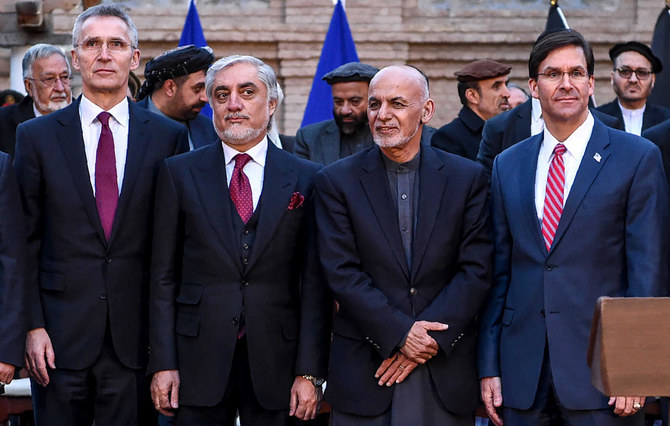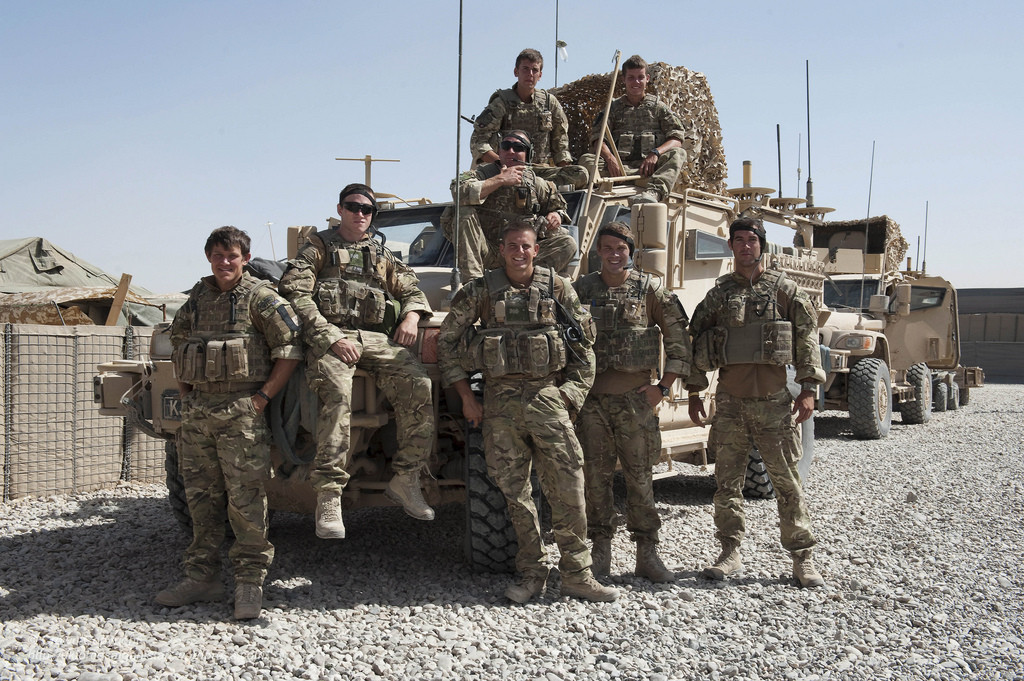Like a 19th century circus, the wandering Afghan peace process is jockeying from town to town, and a round in Islamabad is yet another admission of centrality of Pakistan with regard to the Afghanistan end game. During the fifth trip of US Special Envoy Ambassador Zalmay Khalilzad to Pakistan, both sides reiterated their shared intent of an Afghan led and Afghan owned political settlement of the Afghan conflict. President Ashraf Ghani also thanked Pakistan for making efforts to kick-start Taliban-Afghan government dialogue. Brief arrest of a senior Taliban leader Hafiz Mohibullah in Peshawar underlines a push by Pakistan government to pressure the insurgents to open talks with the Afghan government. Mohibullah is closely involved in talks with the US. The move came a day after the insurgents issued a statement on January 15, threatening to stall peace talks with Zalmay Khalilzad. The Taliban have so far refused to talk to the Afghan government, which they dismiss as a puppet regime put in place by foreign powers.
Taliban spokesman Zabihullah Mujahid said that the current situation highlights a split that has emerged among countries with an interest in the region, with Pakistan and the US pushing the Taliban to open talks with Kabul and other countries, including Iran, supporting the Taliban’s stance. “Iran and Qatar are supporting Taliban’s way but Pakistan is saying what the Afghan government and the US wanted”.
Islamabad fears that any hasty withdrawal of foreign forces could trigger an uncontrolled collapse of the Afghan government, leaving a vacuum that could send tens of thousands of refugees across the border. Afghanistan routinely accuses Islamabad of providing support to the Taliban. Pakistani officials deny this but say they have a degree of influence which they have been using to try to persuade the movement to accept peace talks.
Core US interest is to maintain ‘permanent bases’ in Afghanistan and that has been the sticking point in the ongoing talks. Special Envoy for Afghan peace Ambassador Zalmay Khalilzad spent another five days in Pakistan in search of Afghan peace for which President Trump gave him six months, out of which he has almost consumed three. While in Pakistan he held talks with national leadership. He held talks with foreign office regarding the Afghan peace process, negotiations process with Afghan Taliban and timeframe for US military’s withdrawal from Afghanistan. His visit to Pakistan was part of a larger two weeks sojourn to four countries of this region including China, India and Afghanistan, with an aim to “facilitate a negotiated settlement to the conflict in Afghanistan”.

The US State Department has stated that its Special envoy continues to coordinate his peace efforts with President Ashraf Ghani, Chief Executive Abdullah Abdullah, and other Afghan stakeholders to ensure forward traction of an intra-Afghan peace process. During his earlier visit in December, Khalilzad had reiterated that the only solution to the Afghan conflict was for all parties to sit together and reach an agreement on the political future of the country with mutual respect and acceptance.
Taliban think: “The United States agreed during the Doha meeting in the month of November 2018 about discussing the withdrawal of foreign forces from Afghanistan and preventing Afghanistan from being used against other countries in the upcoming meeting”. And the US “is now backing away from that agenda and is [now] unilaterally adding new subjects.”
The latest push for seeking a political solution to the war has brought back Saudi Arabia and the UAE to the centre stage in the Afghan peace process. The US, through the greater involvement of these countries wants to put pressure on the Taliban to accept its main demands. And since then, Saudi Arabia and the UAE have been trying to convince the Taliban to accept the US demand in return for a major share in the Afghan government and other incentives. But the Taliban are not taking the bait and have refused to participate if any further talks at these two venues, they prefer to revert back to Doha. Pakistan is aware that Afghanistan will continue to need huge amounts of foreign aid to keep its shattered economy afloat after any peace settlement.
In a statement, the Taliban have said America must pursue the peace talks with “sincere intentions” or they “will be forced to stall all talks and negotiations until America ends her unlawful pressures and manoeuvring and steps forward towards true peace.” The Taliban cancelled the fourth round of peace talks with the US special envoy in Afghanistan over an “agenda disagreement.” And in the battle field Taliban fighters blew up a car-bomb outside a well defended compound killing at least five people and wounding more than 110 Afghans and expatriates in Kabul city. During 2018, there has been an exponential rise in combat and civilian casualties in Afghanistan.
America continues to maintain its ambiguous denial mode by insisting that any final settlement must be led by Afghans themselves. “The US goal is to promote dialogue among Afghans about how to end the conflict, and to encourage the parties to come together at the negotiating table to reach a political settlement in which every Afghan citizen enjoys equal rights and responsibilities under the rule of law,” the US embassy in Kabul said in a statement. However, the leaders of the insurgent group have rejected requests from the US and regional powers to deal directly with the government in Kabul, which it considers as an illegitimate foreign-imposed regime.

As of now, maintaining long-term military bases and firm guarantees of the Afghan soil not being used again to stage attacks in the West and other countries are two major US demands in talks with Taliban. In exchange, America along with its western as well as Arab allies would provide substantial financial assistance for the reconstruction and rehabilitation of Afghanistan through a comprehensive peace deal. Although the Taliban have repeatedly demanded complete withdrawal of the US forces from Afghanistan, they showed an inclination to discuss the suggestion of the US maintaining certain bases in the recent negotiations held in the UAE. Talks in Abu Dhabi were brokered by Pakistan after President Donald Trump wrote a letter to Prime Minister Imran Khan, seeking Islamabad’s help in reaching out to the Taliban.
The Americans have conceded that its bases would have no role in the Afghan security but are meant for maintaining presence for an overall regional stability. Other peripheral objective is to keep close contact with the future Afghan governments in order to ensure that the country does not become a safe haven for any terrorist organisations.
Pakistan is not averse to the US demands but wants a ‘regional consensus’ on it since permanent presence of the US military in Afghanistan would certainly raise eyebrows in Russia, Iran and even China. These countries fear that the US may use the Afghan soil to advance its own strategic designs in the region. For this reason Pakistan is striving to evolve a regional consensus on the possible Afghan peace deal. Soon After the talks in the UAE, Foreign Minister Shah Mahmood Qureshi dashed to Iran, Russia and China in a bid to take them into confidence about the latest development. There is no clarity whether these countries are willing to accept the permanent US military bases in Afghanistan.
To further pressurize Pakistan, former US ambassador to Pakistan Cameron Munter (2010-12) has been roped in by the US. He stated on January 13 that Pakistan had failed to utilise the funds given by his country in an adequate manner. The US also gave funds for the promotion of education in Sindh and Balochistan. However, according to the ambassador, the funds were misused. “The government of Pakistan has been focusing on the development sector, but now there is a need to work on good governance,” he said, adding, “Pakistan should utilise the funds given by the US in a fair manner.” Munter said that the US wanted to maintain strong relations with Pakistan due to which it has been cooperating with Islamabad and has been investing in the education sector. Munter noted that the relations between the US and Pakistan have always been bumpy and added that the US “feels Pakistan does not want to cooperate in the war against terrorism”.
On the possible meeting between President Donald Trump and Prime Minister Imran Khan, the former ambassador said that both “may find some sort of common ground” if and when a meeting is held between the two leaders.US President Donald Trump had expressed his desire to meet Prime Minister Khan for talks on US-led efforts to jump-start the Afghan peace process on January 2. Munter commented, “Trump and Khan are in power because they both have very good political sense.” “They have the fingertip feeling, as we say, they’re very clever with people,” he added.
The former US envoy said that at the tactical level there was still a sense that the kind of ties the United States has with the Pakistani military are “valuable and important, if for no other reason then that there is still a residual [American] force in Afghanistan”. He said it was the “competence” of the Pakistan Army that made them a “good partner” for Washington, and cited the example of the 2010 floods in Pakistan. During the catastrophic floods, he said he had opted not to call the PPP government to help the affected people, and instead approached the Pakistani military.
Guarantees and assurances aimed at promoting peace and security of both Afghanistan and other countries are understandable and logic also demands that those who devastated Afghanistan through ruthless bombing and killing should compensate for the losses and damages by way of cooperation for reconstruction and rehabilitation in the war-torn country. However, the demand for maintaining permanent military bases in Afghanistan is unjust and amounts to usurpation of its sovereignty. People of Afghanistan have always opposed presence of foreign troops on their soil and that is why there has been consistent demand for complete withdrawal of occupation forces. Continued presence of occupation troops would remain a source for unrest in Afghanistan and the objective of normalization might not be achieved.
Instead, political stability and a comprehensive reconstruction and rehabilitation plan, backed by the international community, would be firm guarantees that the Afghan soil would not be used against any other country in future. And this objective can be realized if all segments of Afghan society including Taliban get their due share in the political process and government formation. The demand for permanent military presence is indicative of the desire not only to keep Afghans subjugated but also to brow-beat other regional countries. The United States has a history of poking its nose in the internal affairs of other countries and the demand for permanent bases is apparently aimed at advancing this objective.




